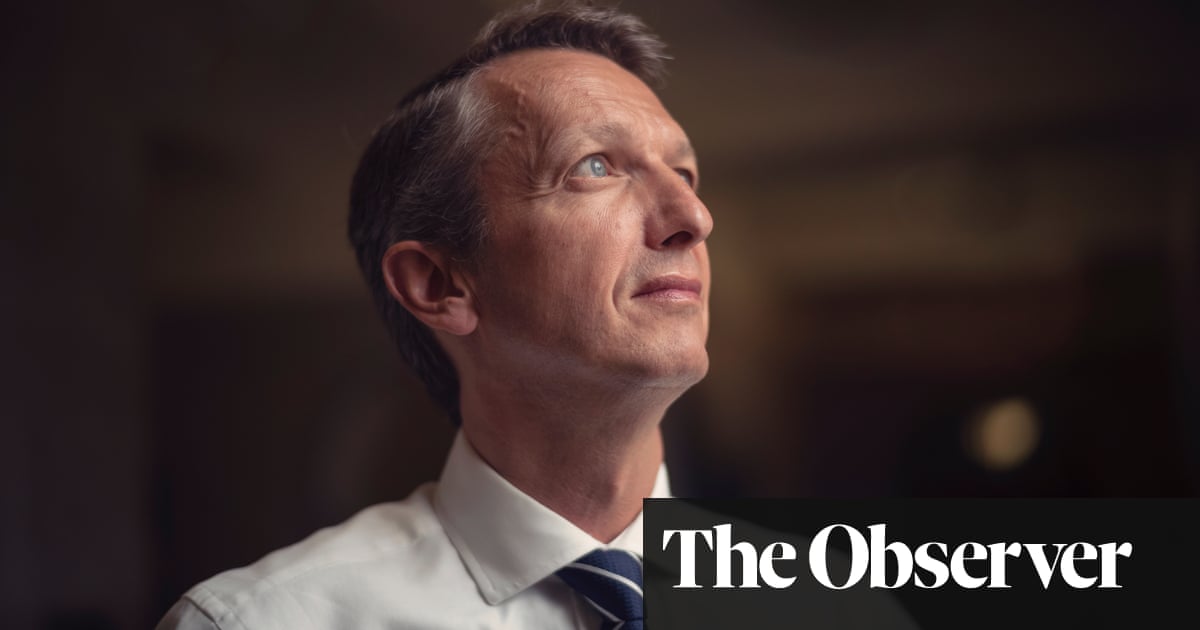Andy Haldane: we can fix the cost of living crisis. But will we? - 4 minutes read

Haldane has moved on to run the Royal Society of Arts (RSA) thinktank, via a stint at the Cabinet Office, helping put together Johnson’s levelling up white paper. Although there will soon be a new face in No 10, Haldane says the next prime minister must not just stick with the levelling up agenda but turbocharge it.
Regional economic rebirth is at the heart of what makes Haldane tick. Whether it’s called levelling up or given another name isn’t important to the economist, who grew up in the Leeds suburb of Guiseley, a former mill town known as the home of Harry Ramsden’s fish and chips and Silver Cross prams.
“When I was growing up, Bradford and Leeds were not quite level pegging but not far off. But over the past 40 years, Leeds has hit the afterburners while Bradford has sort of got stuck,” he says. “There are stirrings now in Bradford. It is moving, and city of culture status [in 2025] will put the rocket boosters behind that.”
Haldane criticises the government for not putting more oomph behind one of its flagship policies. “You won’t be surprised to hear I was nudging for going further, faster,” he says of his time helping develop the strategy for Michael Gove, the former levelling up secretary, while on a six-month loan from the RSA.
With a growth slowdown across the economy and inflation at its highest for four decades, calls for new ideas that can pull Britain out of a downward spiral are about the only thing not in short supply. With a severe lack of workers and raw materials weighing on growth, Haldane’s analysis of where things are going wrong is stark.
However, the growth engine is stalling because of disruption to the labour market – by older people quitting the workforce during the pandemic, and by Brexit hitting EU migration. “That’s among the reasons for the cost of living crisis. It’s a key source of the supply-side shocks we’ve seen. If the labour supply – that workforce engine – has gone, we need the productivity engine to fire. The growth arithmetic really is that simple.”
Age 54
Family Lives in south London with his wife, Emma Hardaker-Jones, who is HR director at Legal & General. They have three children and a dog.
Education BA in economics, Sheffield University; MA in economics, Warwick University.
Last holiday Deal, on the Kent coast.
Best advice he has been given “Early on in my Bank career, I was lamenting the way it did things. The person told me: ‘What are you on about? You are part of the Bank. If it doesn’t work, just change the Bank’. It was such an obvious point, but of course absolutely right.”
Biggest career mistake “I’ve made plenty, and I make no apologies for that. I hope I learned from them.”
Words he overuses “White paper.”
How he relaxes Walking the dog and watching cricket, his favourite sport. “There is no better way of relaxing than sitting and watching cricket on a sunny summer evening.”
Haldane was born in Sunderland and is proud of his roots. At home he has a signed picture of the wonder save made by Jim Montgomery, Sunderland’s goalkeeper, in their shock 1973 cup final win over Leeds. More recently, his home city was a bellwether of the 2016 Brexit vote, a subject on which Haldane is unusually tight-lipped.
Haldane spotted that this would drive up inflation earlier than most economists, warning last year in characteristically colourful terms that the “beast of inflation” was back after a sleepy few decades. Just over a year ago, his optimistic view of economic growth led the Daily Mail to label him “Mr Boom”, as he warned of “Chicken Licken” pessimism dragging the country down.
Although touted as a possible successor to Mark Carney as Bank governor, Haldane says he never aimed for the top job at Threadneedle Street. “I’d done everything at the Bank I wanted to do, basically. I had done most things, other than print the notes. The job I most wanted was, fortuitously, the one I was doing when I left.”
Source: The Guardian
Powered by NewsAPI.org